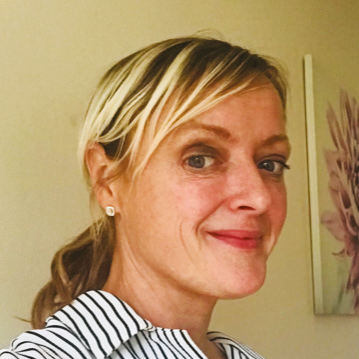“An opportunity to work on ourselves” – The CPD lessons teachers can learn from lockdown

Jayn Sadler talks us through the main professional lesson she took away from lockdown…

- by Jayn Sadler
- English teacher based in north Essex

As we prepare to move out of lockdown and turn our attention to the new academic year, it’s becoming ever more apparent that teachers will find themselves returning to schools that look and feel very different to those that most of our students left in March.
At the government’s insistence, year group separations, carefully assigned break and lunch times and staggered starts and finishes will all form part of the ‘new normal’ at every secondary school across the country.
The prospect of a full return to school, after what for many of us will have been a six-month absence, leads one to reflect on the journeys we’ve been on during lockdown – which in some cases will have afforded us opportunities to work on ourselves, whilst staying at home to save lives.
Personal spirit
I personally dedicated some time during lockdown to add Hegelian Dialectics to my arsenal of teacher tools. I first encountered the theory a while ago – it holds that every thesis has an antithesis, and that out of the two coming into conflict emerges ‘synthesis’: the order of all things.
I initially sought to apply the theory to my own life by identifying two distinct parts of myself – one I called ‘personal spirit’, and another I termed the ‘professional soul’. There have been (and still are) times when clashes between the two have caused me problems, but I’ve also come to see how there may be a way for me to merge the two, in order to become both a better person and a more inspirational teacher.
The personal interests and hobbies that make up my personal spirit span a wide range of areas – from religion, philosophy and history, to political science and all things literature, as well as the aesthetics and psychology of film. As an English teacher, I’ve sought to transfer this personal spirit into my professional soul (the thesis and antithesis) and from that, become new type of teacher that’s very different to the one I trained to be (synthesis).
Appearances versus reality
To illustrate what I mean, I’ll explain how it’s informed my teaching of J.B. Priestley’s political reality within An Inspector Calls. Previously, when approaching this text, my planning would have likely involved giving students a think pair share activity themed around WWI, capitalism and socialism, maybe with a cheeky ‘Treasure Hunt’ thrown in, whereby students scour the classroom for information on the class system of Edwardian England and copy down words without really understanding what they mean.
However, using my newly developed, individual synthesised teaching model, I now teach it differently. “Who’s seen The Matrix?” I’ll ask. The kids start buzzing. I then talk them carefully through Elon Musk’s observation in 2016 that ‘It is only a billion to one chance that we are not living in a computer simulation,’ and we’ll debate this at length. The kids remain engaged, with seemingly everyone having something to say.
We move on to talk about video games, and how computer graphics have improved over time. I’ll later pose questions such as, ‘How do we know we aren’t just electrically charged brains in a jar?’ or ‘How do we know we aren’t dreaming this lesson?’. We’ll watch The Matrix’s famous exchange between Neo and Morpheus, and consider the implications of the ‘many universes’ theory (links to Marvel here, too). I’ll ask students ‘What if someone lifted a veil and you realised your life was a movie?’ and see their jaws drop. Through this, they’re learning about appearances versus reality – a difficult but important concept to grasp.
Emotionally charged
Next, we examine the character of Arthur Fleck, played by Joaquin Phoenix in the film The Joker, and how lonely and downtrodden his existence is shown to be. ‘What’s wrong with Arthur?’ I ask. ‘The government doesn’t care about the poor!’ offers one student. ‘They’re left to rot,’ adds another.
I then ask the students to think about how the 26 richest people in the world collectively own as much the less wealthy half of the world’s total population, before showing two video clips: one from a TV show about homes belonging to the super-rich, and one from a news report about UK food banks. ‘How is this right?’ they ask.
Now, with them having become emotionally charged and suitably inspired, I turn their attention to the text. ‘Do you feel like Priestley? Do you feel Priestley’s rage the same way you felt the Joker’s rage?’
The lockdown has afforded me the chance to advance my knowledge and use it to create better links for my students. As teachers, I believe we should always retain an element of being students ourselves, so that we can create the kind of engaging cross-curricular links that will help us tackle Ofsted’s ‘deep dive’ requests in future. It seems to me that these deep dives are another challenge set by the government for us to up our game again – so let’s show them how we can manage and meet such educational challenges at a time of crisis.
Jayn Sadler is an English teacher from north Essex










